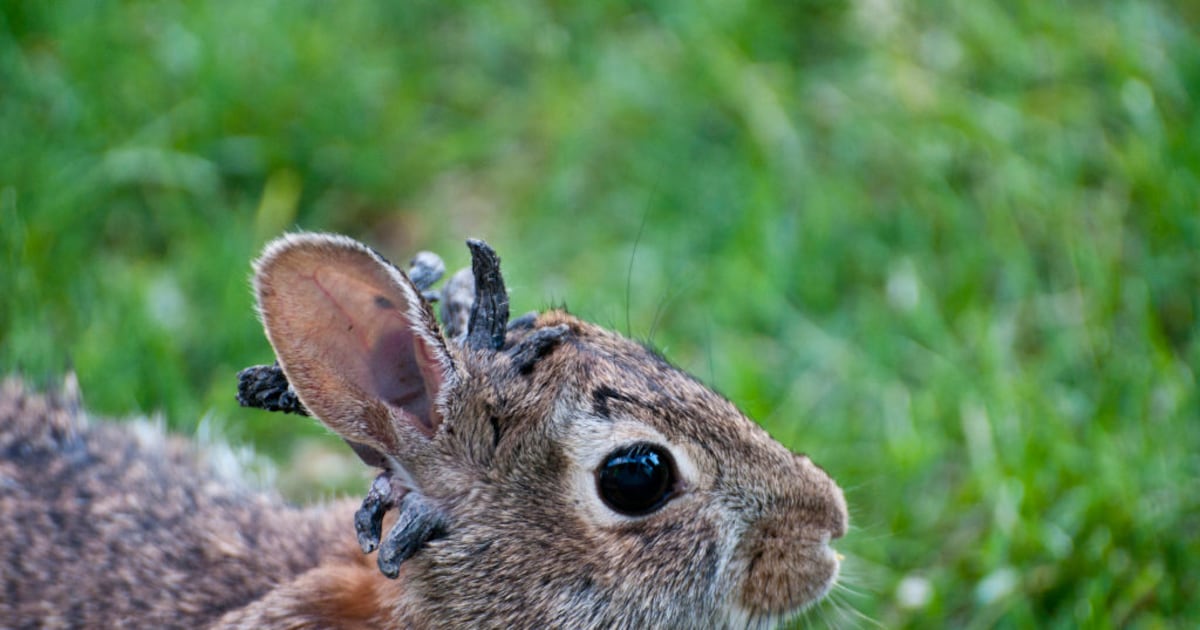Wild rabbits with strange black growths on their heads have caused concern among Colorado residents, with some referring to them as “Frankenstein” rabbits.
According to The New York Times, officials say locals and pet owners do not need to fear the unsightly rabbits, as they are simply infected with cottontail rabbit papillomavirus. The disease is a mostly benign infection that doesn’t spread to other species.
Kara Van Hoose, a spokeswoman for Colorado Parks and Wildlife, said that the rabbits typically overcome the disease on their own. The growths are only concerning if they hinder the animal’s ability to eat or see, per The New York Times.
These growths can resemble “gross” warts, tentacles or horns, and many people have been posting about the phenomenon on social media.
OCTO-BUNNY: Rabbits in Fort Collins with Tentacle-like Growths Explained
In Fort Collins, Colorado, rabbits have been observed with unusual growths resembling tentacles, caused by the Shope papilloma virus, a condition that leads to benign tumors. These growths, often mistaken… pic.twitter.com/IrcUWeThOz
— Doolly Noted ✏️ (@doollynoted) August 13, 2025
The disease is transmitted to rabbits through biting insects such as fleas and mosquitoes, making it more common in the summer.
There isn’t a cure or treatment for the disease — most infected rabbits will survive, and eventually the growths will go away, according to the Colorado Parks and Wildlife website.
The sightings of infected rabbits have been in and around Fort Collins, Colorado, 65 miles north of Denver, according to The Associated Press.
Officials are unsure how many rabbits are infected, since people could be reporting the same ones repeatedly, per The New York Times.
While the disease cannot spread to humans and other animals, the CPW recommends that people stay away from infected rabbits and enjoy the novelty of their appearance from afar.
“Nature is metal,” Van Hoose said to The New York Times, “and this can be kind of cool looking on different rabbits.”
The disease can infect pet rabbits, and people should keep their rabbits inside if they see infected wild rabbits in the area, per The New York Times. The disease is more severe in domesticated rabbits and, in some cases, can cause cancer.
According to CPW’s website, pet owners should take their rabbits to a veterinarian if they become infected.

